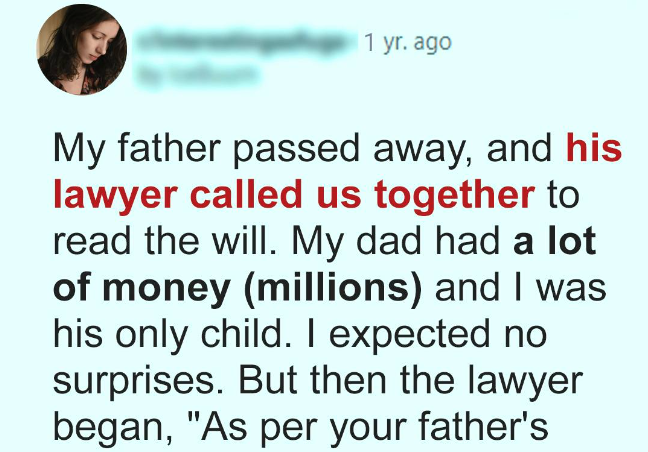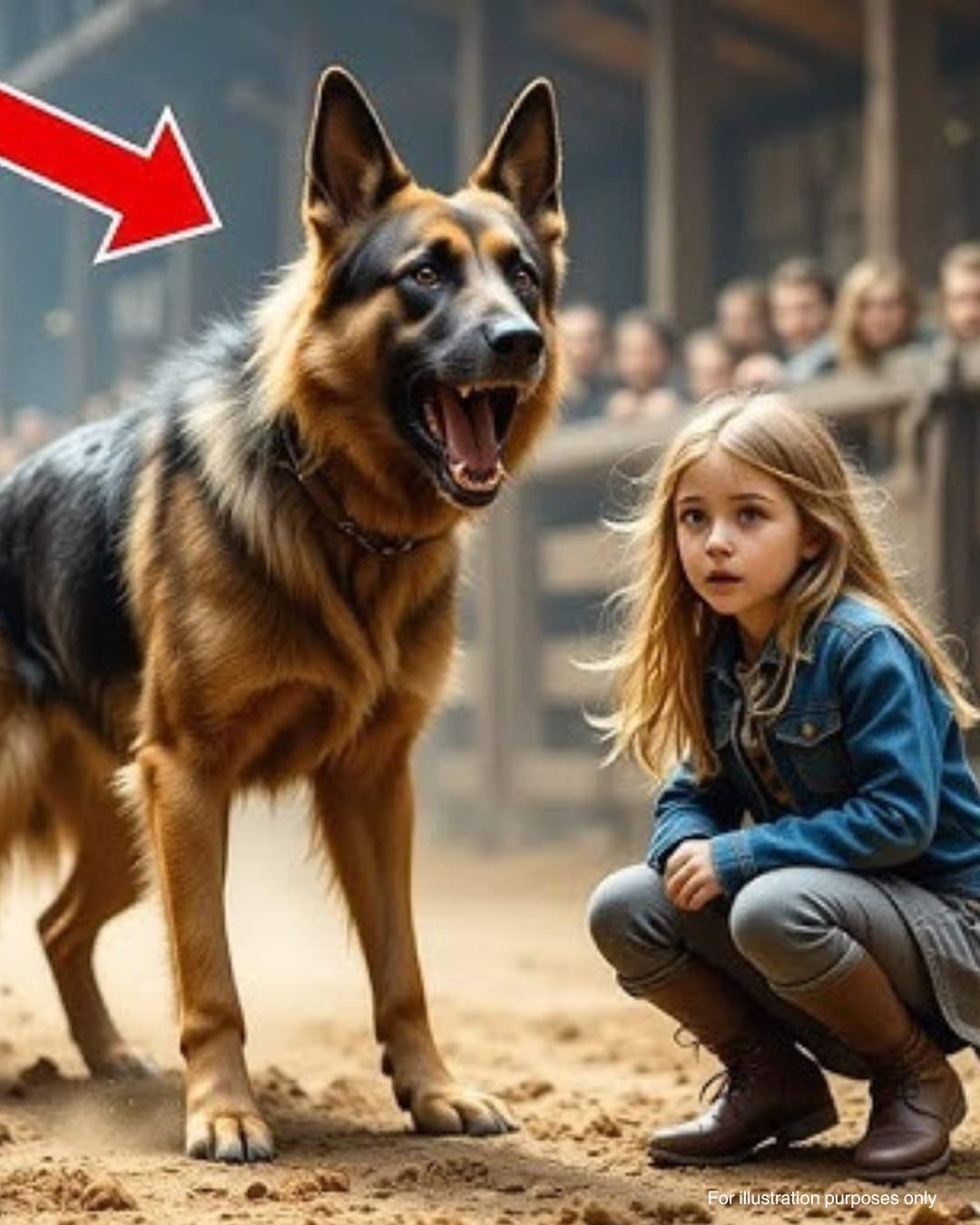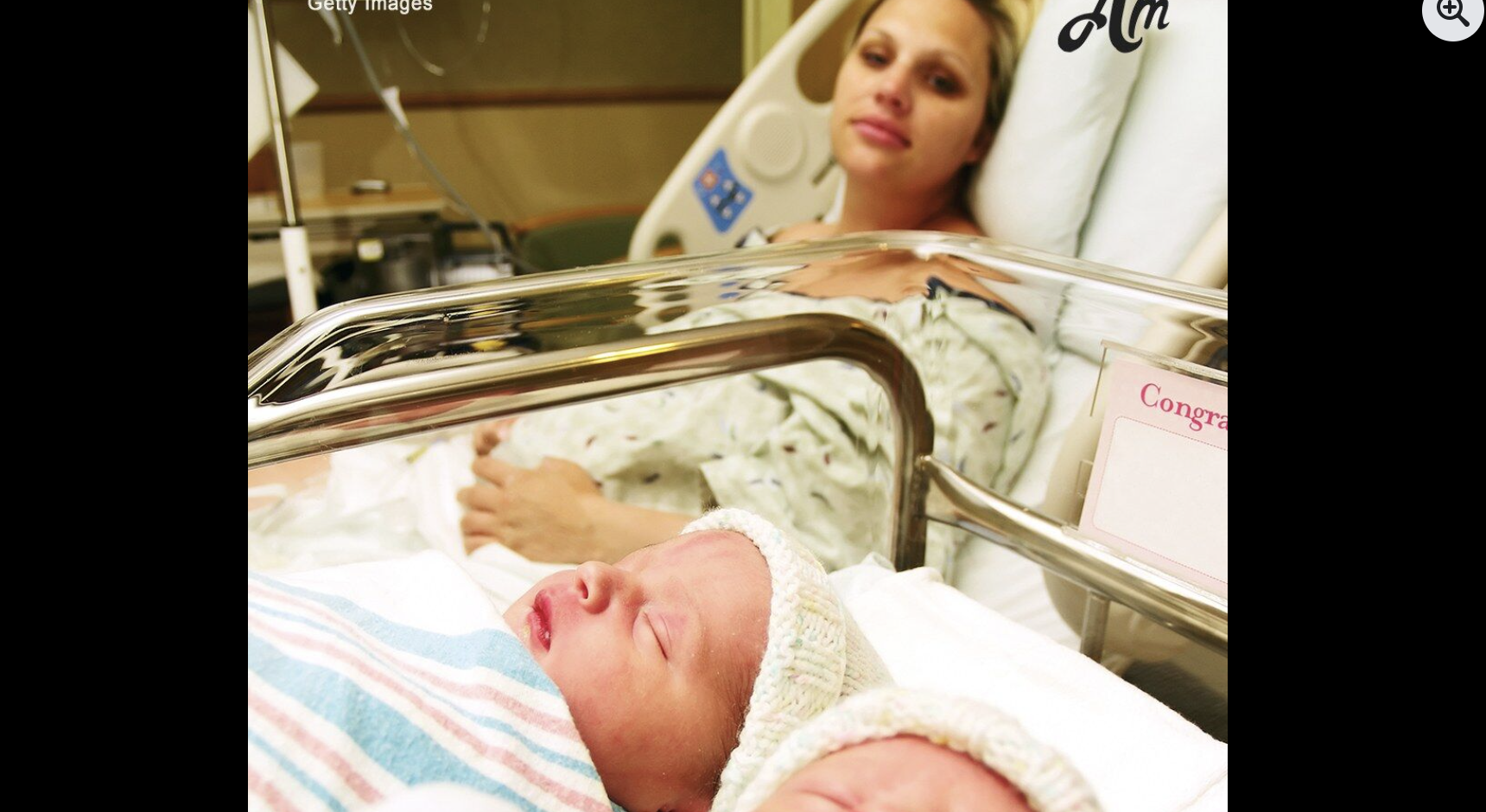My father’s will was meant to secure my path forward. But when the lawyer spoke a name I didn’t recognize, my world tilted. My grandmother’s fury erupted immediately. Who was Brenna, and why had my father chosen her to inherit his entire estate? What secret lay behind his choice?
My childhood was shaped by a structure of unrelenting standards. Each morning, a stern voice echoed through our home.
“Keep your posture straight, Mona. Never slouch. A lady carries herself with grace.”
That voice was Loretta’s—my grandmother, my guardian, my ever-watchful guide. After my mother’s death, Loretta took charge, shaping me to fit her ideal of perfection.
Every aspect required precision: my grades, my demeanor, even the way I folded napkins. The effort was exhausting, but I pressed on. I always aimed to meet her expectations.
When my father passed, Loretta’s focus shifted to what she prized most: control. I clearly remember the day everything changed. We sat in the lawyer’s office, the air thick with expectation.
“You’ll handle the inheritance wisely, Mona,” Loretta stated that morning, already planning how we’d uphold the family’s legacy. “Your father devoted his life to this.”
I believed her. Loretta’s confidence had always been unshakable, her plans impeccable. So, in that cold office, surrounded by the faint smell of old coffee, I felt assured about my future.
“Per your father’s wishes,” the lawyer started, glancing at the document, “his estate, including all properties and funds, is bequeathed to Brenna.”
“Who?” The word escaped before I could stop it.
The lawyer paused. “Brenna is your father’s other daughter.”
“Sister? I have a sister?”
“Preposterous!” Loretta’s voice rang out sharply. “This is nonsense! My son wouldn’t leave everything to someone we don’t know!”
“There’s no mistake, ma’am,” the lawyer said evenly. “Your son’s instructions were clear. Brenna inherits the house, accounts, and investments.”
“What?” Loretta’s voice rose to a shrill pitch. “You’re saying this unknown girl gets it all?”
I barely heard their argument. A sister. A sister I’d never met. Loretta’s grip on my hand tightened, pulling me back to the moment.
“We’ll fix this, Mona,” she promised. “We’ll find this Brenna and make sure she does what’s right.”
Her words felt heavy, but I nodded. Defying Loretta had never been an option.
Days later, following Loretta’s orders, I arrived at Brenna’s home. The small house leaned slightly, its faded paint peeling like old memories.
Before I could knock, the door creaked open, and Brenna appeared, her smile warm and welcoming. Her hands fidgeted, fingers weaving in a quiet, rhythmic pattern.
“Hi!” Her voice was bright, almost musical. “I saw you coming. Did you park by the mailbox? It’s wobbly. I keep meaning to fix it, but…”
Her words trailed off, her eyes flicking to the doorframe’s edge. She tapped it three times with her knuckles.
“Uh, yes,” I replied, feeling off-balance. “I’m Mona. Your sister.”
“Come in!” she said cheerfully, stepping aside without looking at me directly. “Watch the floorboard near the kitchen—it squeaks.”
The house smelled faintly of clay and earth. A narrow hallway led to a kitchen where a long workbench held half-finished pottery, paint cans, and unfamiliar tools.
Brenna adjusted a row of mismatched vases on the windowsill three times, whispering softly before nodding in satisfaction.
Then, as if nothing had happened, she turned to me, her smile back. “You’re my sister.”
“Yes,” I said carefully, unsure how to respond to her warmth. “Our father… he passed recently.”
Her smile didn’t waver. “What’s it like? Having a dad?”
“It’s… hard to explain. He was kind. He cared a lot. We were close.”
She nodded, her fingers tapping lightly on her legs. “I never met him. But I have his hands.” She held up her palms, showing faint clay stains. “My mom always said so. Big hands, like his.”
Her openness caught me off guard. I had expected defensiveness or caution, but Brenna radiated quiet honesty.
“Dad left me a gift,” she said suddenly.
“A gift?” I repeated. “That’s… great.”
“Yes. He called it that in the lawyer’s letter. Did he leave you a gift too?”
I hesitated, Loretta’s harsh words echoing in my mind. “Not really. He didn’t…”
“That’s strange. Everyone should get a gift.”
I smiled faintly. “Maybe.”
“Stay for a week,” Brenna offered, her eyes shining. “You can tell me about him. What he liked, what he ate, how his voice sounded.”
“A week?” I asked, surprised. “I’m not sure if…”
“In exchange,” she cut in, “I’ll share the gift. It’s only fair.” Her hands twisted together as she waited for my reply.
“I’m not sure I have much to say about him,” I admitted, though the words felt false as I said them. “But… okay. A week.”
Her face lit up with joy. “Awesome. We can have pancakes. Only if you like them, though.”
She returned to her workbench, humming softly. I knew what her “gift” was—the inheritance. Loretta’s plan seemed simple. Too simple. Yet Brenna’s kindness was already complicating things.
That week at Brenna’s felt like stepping into a new world, one where time slowed and pressures faded. Her life was so different from mine.
Breakfast was no longer a delicate pastry with a frothy latte. Instead, it was straightforward—bacon, eggs, and tea on paper plates.
“Less hassle this way,” Brenna said one morning. “No big cleanup. More time for pottery.”
Her honesty, free of pretense, was refreshing yet unsettling.
I noticed her habit of arranging and rearranging plates on the porch rail, ensuring perfect alignment. Each movement seemed to tell its own story.
“Let’s walk to the lake,” she suggested on my second morning.
She slipped off her sandals, leaving them neatly by the porch, and stepped barefoot onto the grass.
“It feels better this way.”
Dew clung to the grass, cool against my feet, as I followed her. She paused now and then, touching leaves or adjusting a small stack of stones along the path.
Those deliberate actions seemed to anchor her, as vital as breathing.
At the lake, she knelt by the water’s edge, trailing her fingers through it. “Do you ever sit and listen?”
“To what?” I asked, standing stiffly behind her.
“Everything.”
Brenna’s studio became the heart of our days. The air was thick with the earthy scent of clay and creation.
On the third day, she handed me a lump of clay. “Here. Make something.”
My first try was a disaster. The clay slipped through my fingers, collapsing into a shapeless mess.
“It’s terrible,” I sighed, ready to toss it.
“It’s not terrible,” Brenna said, her hands guiding mine to reshape the clay. “It’s new. New things need time.”
Her patience amazed me. Even when I spilled water on her workbench, smudging a finished piece, she didn’t scold me. She simply cleaned it up.
As I began to relax, free from Loretta’s constant scrutiny, her calls grew more frequent. It was as if she sensed my shift, my newfound ease.
One night, her voice sliced through the phone, sharp and commanding. “Mona, what are you waiting for? This isn’t a vacation! You need to act. She’s not capable of managing that wealth.”
I gripped the phone tightly, staying silent as her frustration spilled over.
“She’s naive, Mona. Convince her to sign it over. If kindness doesn’t work, find another way. Use her trust.”
Her words stung, clashing with the warmth of Brenna’s world.
“I’m not sure, Grandma. It’s not as simple as you think.”
“It’s perfectly simple,” she snapped. “Don’t get distracted by her strange habits. Stay focused, Mona.”
I wanted to argue, to say Brenna deserved more than Loretta assumed, but the words wouldn’t come. I mumbled a vague reply and hung up. For the first time, I questioned my own motives.
The next day, Loretta arrived unannounced, her commanding presence shattering the peace. Her heels clicked sharply on the uneven floor as she entered.
“This is where you’ve been?” she snapped, her eyes scanning Brenna’s organized chaos of a pottery studio. “How can you stand this mess, Mona? And you,” she turned to Brenna, “you have no right to what’s been given to you.”
Brenna froze, her hands trembling as she rearranged vases on the workbench, whispering, “Gift, gift,” to herself.
Loretta ignored her, addressing me. “Mona, end this nonsense. She doesn’t belong in your father’s legacy. She’s…” Her voice dripped with scorn, “not like us.”
“Gift,” Brenna said louder, pointing to a small cabinet. Her movements grew more intense, her fingers tugging at her apron.
I hesitated but opened the cabinet. Inside was a stack of worn letters, their edges frayed. Each was addressed to my father. My breath caught.
“What are those?” Loretta demanded.
“Letters from Brenna’s mother,” I said, skimming them. “Did you know?”
Loretta’s face paled, then hardened. “I did what was needed! Do you think I’d let some woman trap my son with a troubled child? When she came looking, I told her to stay away. I wouldn’t let her or her daughter join this family.”
Her words were cold, and Brenna gripped the table, her eyes wide and fixed on Loretta.
“You broke this family,” I said, my voice trembling. “You never told him he had another daughter.”
Loretta’s laugh was icy. “He found out! That’s why he changed his will. And now you’re letting her take everything!”
“Dad left a gift,” Brenna said softly. “He wanted me to have it.”
“This isn’t about wealth, Grandma. And I won’t let you take anything more from her.”
Loretta stormed out, the door slamming behind her.
I turned to Brenna. “I’m so sorry. I love you, sis.”
“Want pancakes?” she asked abruptly, as if the confrontation hadn’t happened.
“I’d love some.”
We ate on the porch as the sun set, painting the sky in warm hues. From that day, we began building a life together.
I helped Brenna expand her pottery studio. We repaired the house, decorated it with flowers, and I rediscovered my passion for painting by adorning her creations.
Word spread, and soon customers came from nearby towns to buy our work. Life wasn’t perfect, but it was ours. For the first time, I lived for myself and Brenna, not someone else’s expectations.




